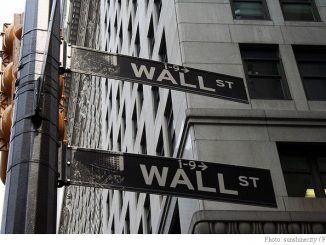
After the announcement of Michael Lewis new book (which I don’t have a copy of, and I am not asking for one), together with a variety of interviews, he declared that the stock market is rigged. This is a convenient finding that will gladden the hearts of many who have tried the markets and lost. The trouble is, there are ways in which the market is rigged, and ways in which it is not. There are ways to avoid much of the rigging, if are knowledgeable, disciplined and in control of your emotions.
Let’s start with a story. My oldest son was an intern at a hedge fund that I worked at during a summer of high school. He sat in with analysts, portfolio managers, and our trader. He remarked to me, “The trading part seems like a lot of fun.” I said to him, “Jason is a skilled trader, is good at discerning market conditions, and is able to trade our positions without divulging too much of what we want to do especially when stocks aren’t liquid.”
Another story: When I was a bond manager, and had to trade my portfolio (this is pre-TRACE where actual pricing data was scarce to anyone except the brokers who could see the inter-dealer market prices) realizing that the big brokers knew more than me, the regional brokers did not, and the little specialty brokers knew their niche at most, and nothing else. I got very good at sniffing out potential trades, to the point where a number of my brokers would run ideas past me. Most would not fly, a few would.
I learned that I had to be careful what I said and how I said it, because this was a voice-to-voice market, and not electronic. Markets change when new information arrives. I remember how delicate I had to be when I owned 35% of an illiquid bond that we liked, and I needed to sell it down without spooking the market. I did it by telling the potential buyers that I really liked the bond, had no reason to sell it, but that I was a businessman, and would be willing to part with a few (million) bonds at a slightly higher price, more at a higher price, and a significant amount (20% of the issue) at a price that discounted most of the excess value of the bonds. The bids came in, and I got the significant amount price, and at a much higher price than had been previously seen for the bonds.
Now if I had done a “market order,” and said to a broker, “Sell half of the block at the current price,” I would have gotten a much lower price. That would have signaled desperation.
Another thing from voice-to-voice trading, I would tell my brokers what I was doing with the proceeds of a sale. I did not want them to think I had any special information that they did not have. ”We need to raise cash to pay benefits.” ”I see a class of bonds that are really cheap, and I need liquidity to do so.” When I said those things, they were true, but it was like showing four cards of my poker hand, and hiding the fifth, the most critical card.
Information changes markets. The reason that I mention bond trading, even though my target is stock trading, is that it was a *far* more rigged market because it was dealer-driven, and voice-to-voice. It was far easier to lose to more skilled brokers, than trading stocks online today.
Now, Michael Lewis alleges that the market is rigged because there are clever high-frequency traders who trade quickly when they get significant information. What information? Market orders. Market orders scream, “I gotta buy/sell the stock NOW!” Motivated buyer, motivated seller? That can change a market, if briefly.
Time for embarrassment. I learned this one the hard way. I was doing microcap value 1993-1998, with some significant success, but one day I slipped, and entered a market order for 1x the daily volume of a stock. The stock’s price doubled before the order was fully filled, and then sank back down to very near where it was before I bought it. To add insult to injury, the company was eventually a “take-under,” where control shareholders bought it out at a price even below that.
Don’t use market orders. If people stopped using market orders, much of the advantage of high frequency trading would go away. Use limit orders, and wait for your price, at the risk of the trade getting away from you in the short run.
Also, use orders that disguise your size and price you are willing to buy/sell at. Reserve and discretionary orders are useful weapons to disguise your intent. Also, get a low cost broker that charges commissions on a per share basis, and break up your trades into smaller chunks that are more easily digestible by the market.
But while trading is a large portion of the stock market reason to exist, it does not comprehend the true value of stocks. There is a saying, and it is true: you don’t make money when you trade; you make money while you wait.
The stock market will not make any more value than the cash flows that get distributed by the businesses comprised there. Some individuals may prosper from momentum trading, but it is at the expense of other investors, not the company.
The waiting game is not rigged. As companies make money, and reinvest/distribute it wisely, value is built. This is Ben Graham’s “weighing machine” versus the trading market’s “voting machine.” In the short-run, trading dominates. In the long-run, corporate value generation (or lack thereof) dominates.
Never Bring a Knife to a Gunfight
But there is away that the market is significantly rigged, but it is lodged in human nature, and not lodged in nefarious fellows who pick off little bits of value off market orders (a trifling amount of the value gained for longer-term investors). Most of the people who believe the market is rigged are those who haven’t studied the market enough and thought it would be easy. It’s not easy; and if you think that it is easy, you will be skinned.
Much money for less skilled investors gets lost as a result of buying near peaks (greed, or late imitation), and selling near bottoms (fear, or capital preservation). If you don’t have skill, far better to buy and hold, with a moderate asset allocation to stocks, thus moderating volatility, and moderating fear and greed in the process.
Have healthy respect for your competition. Even the best investment organizations know that their edge in the market is limited. Few pursue every possible advantage; the best understand this is a game where you win by applying your limited advantage where it is strongest, and stay neutral or out where there is no advantage.
Though professionals may be somewhat prone to many of the same pathologies as retail investors, and have the further disadvantage of putting a lot of money to work, still, the professionals apply basic principles day after day, and make the market the hard-to-get-an-advantage place that it is.
Rigged?
So is the market rigged? It depends who you are. If you understand your limitations, do your due diligence, and control your emotions, then no, the markets are not rigged.
If you naively presume that you can make money in the markets without adequate study, discipline, experience, etc., eventually the markets will seem rigged.
And if you are a short-term trader, the high frequency traders have eliminated a lot of the low hanging fruit. The high frequency traders are a reason for even traders to lengthen their time horizons, and use trading tools that disguise their efforts.
For me, the markets are not rigged. They are highly competitive. I keep applying my edge, realizing that I don’t know it all, and focusing on investments where my differential knowledge may make a difference.
My summary is this: the markets are not rigged. They not efficient; we don’t know what that means. The markets are highly competitive, and that makes them tough.
- Bulenox: Get 45% to 91% OFF ... Use Discount Code: UNO
- Risk Our Money Not Yours | Get 50% to 90% OFF ... Use Discount Code: MMBVBKSM
Disclaimer: This page contains affiliate links. If you choose to make a purchase after clicking a link, we may receive a commission at no additional cost to you. Thank you for your support!





Leave a Reply